ChatGPT Tasks | The Dawn of the Agentic Era
Imagine waking up to a day already organized for you. Your AI assistant has reviewed your schedule, checked the weather, set up a daily news briefing tailored to your interests, and made you breakfast.
Ok, it can’t make your breakfast (yet), but the rest is now possible with ChatGPT’s new Tasks feature.
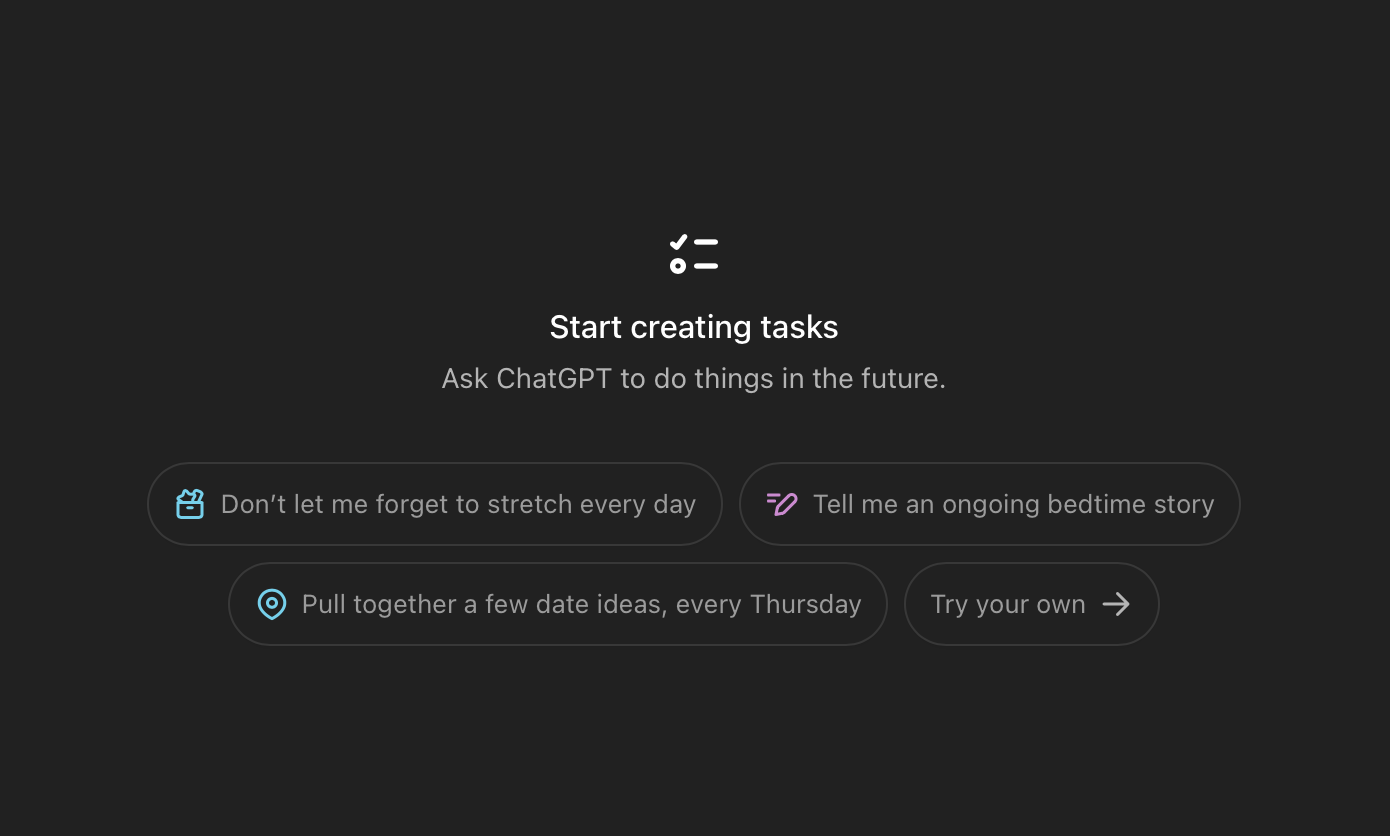
What It Is
At its core, Tasks is a scheduling tool, but it feels like much more than that. It's a step forward, transforming ChatGPT from a reactive tool into something more proactive - instead of simply waiting for your input, ChatGPT now anticipates your needs—delivering what you’ve asked for exactly when you need it.
It lets you program ChatGPT to perform actions at specific times or intervals. Want a daily weather update at 7 a.m.? Done. Need a weekly grocery list based on your dietary preferences? No problem.
If you’re a ChatGPT Plus, Team, or Pro subscriber, it’s easy to get started. Just select “4o with scheduled tasks” in the model picker, tell ChatGPT what to do, and set the schedule. The AI will even suggest tasks based on your conversations (don’t worry, you get the final say before anything’s activated). Once your tasks are running, you’ll get notifications on web, desktop, or mobile.
Of course, there are limits—like a maximum of 10 active tasks at once—but even within those boundaries, Tasks feels like a small taste of what the future of personal AI assistants could be.
What It Isn’t
Let’s set expectations. Tasks is not a fully autonomous AI agent. It won’t book flights, order your groceries, or manage your inbox while you sleep—at least not yet. Right now, it’s more like an advanced digital notepad with a smart reminder system, sticking to what you’ve programmed it to do. Think of it as the AI equivalent of a super-organized friend who follows your instructions to a T but can’t go off-script.
And as with any beta feature, there are some growing pains. Complex schedules, layered prompts, or anything requiring nuanced decision-making can trip it up. It’s great for routine reminders and straightforward tasks, but when it comes to things like nailing a crucial deadline or syncing multiple moving parts, you might still want a backup plan. For now, Tasks shines as a simple, reliable helper—but it’s wise not to rely on Tasks for mission-critical reminders just yet.
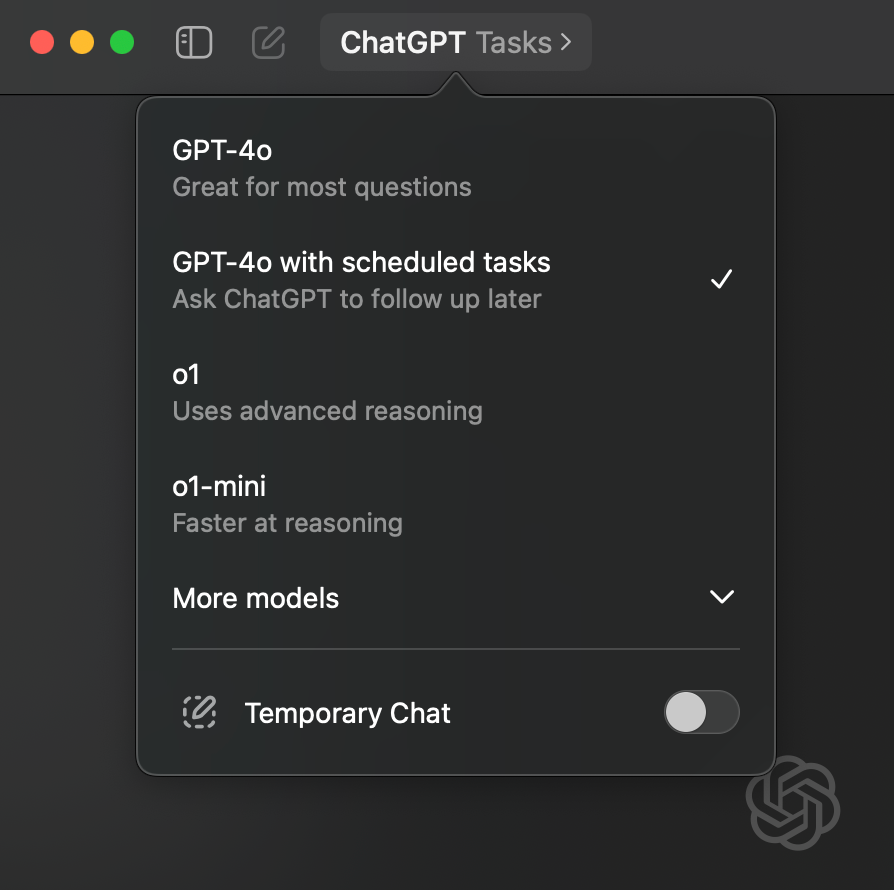
Use Cases and Examples
Tasks is versatile enough to enhance daily routines, professional workflows, and creative endeavors. Its simplicity means the possibilities are limited only by your imagination. Here are a few ways Tasks can fit into your life:
1. Staying Informed with Ease
Want to keep up with your favorite topics without getting lost in endless scrolling? Set up Tasks for a daily news briefing:
“Every weekday at 8:30 a.m., summarize the top three technology news stories, including links to the original articles.”
ChatGPT’s browsing capability ensures you get timely, sourced information, helping you stay in the loop with minimal effort.
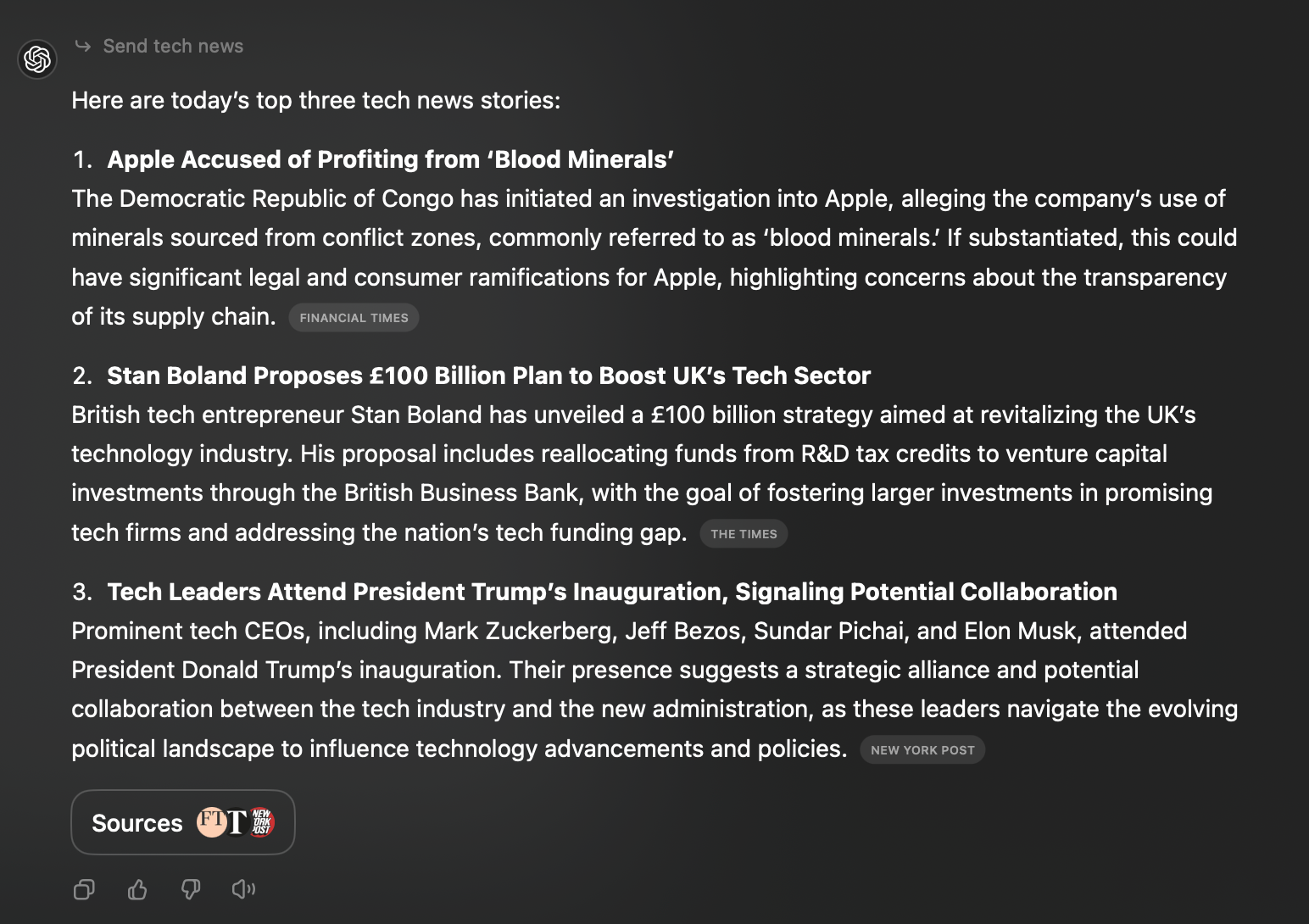
2. Recurring Reminders That Actually Help
Tasks can replace traditional reminder apps with smarter, more personalized prompts. For instance:
“Every weekday at 2 p.m., remind me to stretch and take a short walk during my workday.”
Or something like:
“On the first day of each month, remind me to check my credit card statements for unusual transactions.”
It’s great for staying on top of tasks you’d otherwise forget.
3. Social Media Efficiency
For business owners or personal branding, Tasks can help keep you consistent with your online presence:
“Every morning at 7:30 a.m., draft a social media post based on trending topics and suggest three trending hashtags.”
It’s a quick way to ensure you stay active and relevant, without the stress of coming up with ideas on the spot.
4. Meal Planning Without the Stress
We’ve all faced the nightly dilemma of “What’s for dinner?” With Tasks, you can automate meal planning for the week. For instance:
“Every Sunday at 10 a.m., create a meal plan for the week, including recipes and a shopping list based on my dietary preferences.”
This feature saves time and removes decision fatigue, though some fine-tuning may be needed to match your exact preferences.
5. Entertainment Planning Made Easy
Ever wasted an evening deciding what to watch? Let Tasks make the decision for you:
“Each Saturday at 6 p.m., suggest three movies to watch this weekend, including a short summary and where to stream them.”
Or for the extroverts:“Every friday at 10 a.m., send me three activities/events to do in my city over the weekend”
Or for travel lovers:
“Each day of my vacation at 9 a.m., recommend three activities or attractions near my location.”
Tasks can handle the small decisions so you can focus on enjoying your time.
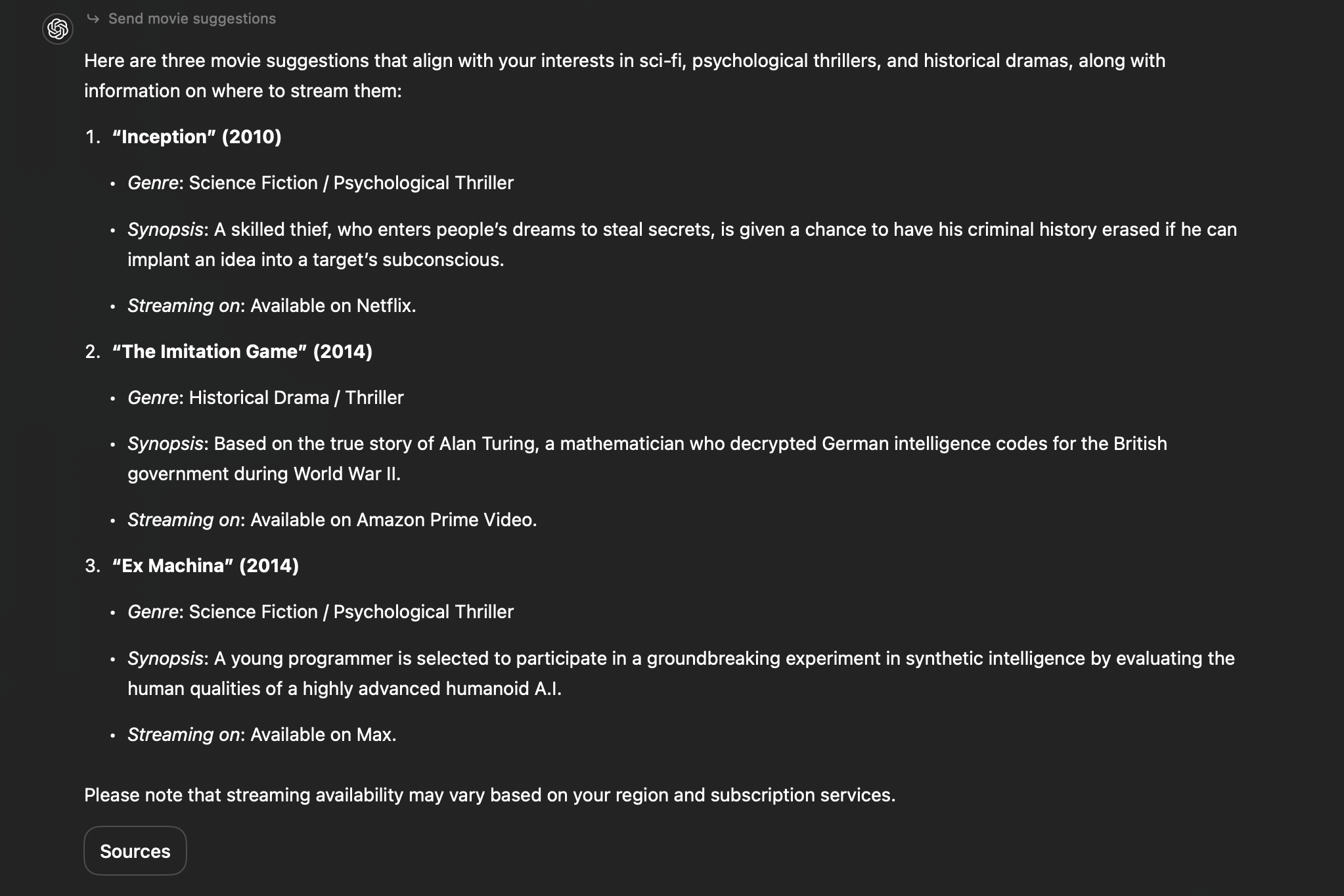
6. Educational Aids for Lifelong Learning
Tasks can also support ongoing education and skill-building. For example:
“Every evening at 7:30 p.m., send me a fun fact about world history with a short explanation.”
Or:
“Every other day at 10 a.m., share a Python coding tip with an example.”
These small, consistent lessons can add up to big progress over time.
7. Complex Scheduling Experiments
Managing intricate schedules becomes more manageable with Tasks. For instance:
“Every Tuesday and Thursday at 5:15 p.m., remind me to leave for my weekly yoga class.”
While simple routines like this work well, more complex schedules may require some trial and error as the feature continues to improve.
Ultimately, it is just a scheduling tool, but somehow it feels different from existing scheduling tools. I think it's the fact that you can speak to it using natural language. It makes the whole experience feel more personal or something.
What Tasks Represents in the AI Landscape
A New Paradigm for AI Assistants
For years, AI assistants like Siri, Alexa, and Google Assistant have dominated the market, offering utility through predefined commands and straightforward actions. While useful, they’ve always been limited by their lack of contextual understanding and adaptability. ChatGPT’s Tasks builds on this foundation but adds something transformative: conversational depth and dynamic problem-solving.
With Tasks, OpenAI is showing that an assistant doesn’t have to feel like a tool—it can feel like a collaborator. You’re not programming a task through rigid inputs; you’re having a conversation about what you need, and the AI interprets, schedules, and executes it. This shifts the user experience from mechanical to intuitive, narrowing the gap between humans and machines.
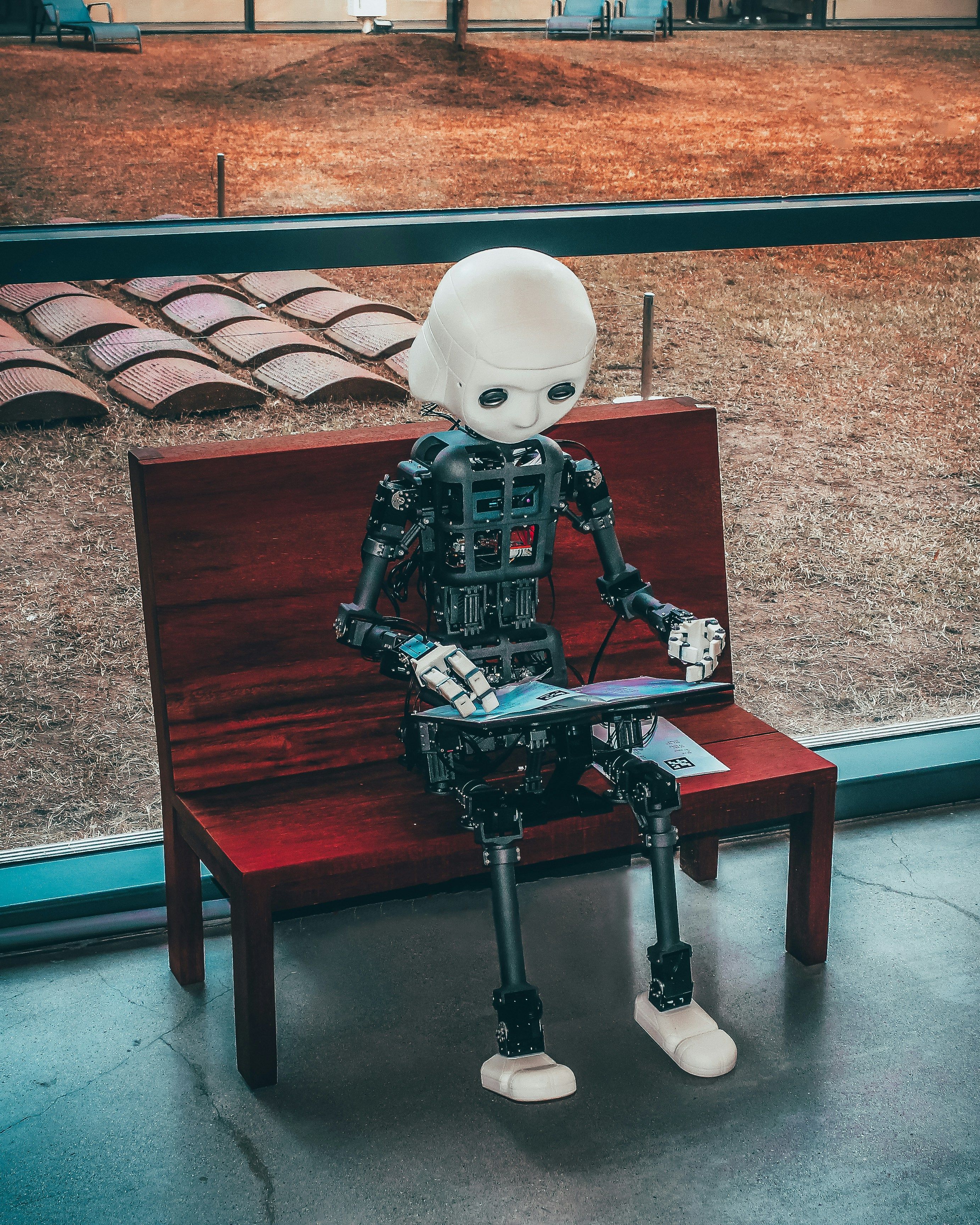
The Dawn of Agentic AI
Tasks also hints at a future where AI moves beyond passive interactions into what experts call agentic AI. This form of AI doesn’t wait for you to tell it what to do. Instead, it anticipates your needs, suggests actions, and operates autonomously within defined boundaries. While Tasks isn’t quite there yet, it lays the groundwork.
For example, Tasks already has the ability to suggest recurring actions based on your previous conversations. Today, you approve these actions manually. Tomorrow, we might see AI systems capable of recognizing patterns in your daily routines, scheduling tasks, and even taking initiative on your behalf. This isn’t just incremental progress; it’s a fundamental shift in how AI operates and integrates into daily life.
Balancing Ambition with Practicality
It’s worth noting that while Tasks points toward a future of more autonomous AI, it’s also a calculated step. OpenAI isn’t rushing headlong into a fully agentic model—there are practical and ethical concerns to consider, from reliability to user trust. By introducing Tasks as a controlled beta feature, OpenAI is balancing innovation with caution, allowing the technology to mature while gathering feedback on real-world use.
Tasks as a Competitive Play
In the broader AI landscape, Tasks also represents a competitive play. By adding functionality that moves beyond conversation, OpenAI is encroaching on the territory traditionally occupied by digital assistants like Google Assistant or even productivity tools like Notion and Microsoft Teams. It’s not just about improving ChatGPT—it’s about positioning OpenAI as a leader in the emerging “assistant economy,” where the lines between AI-powered tools and human collaborators blur.
A Glimpse into the Future
While Tasks is a step forward, it’s also a testbed for bigger ambitions. Features like Operator—OpenAI’s rumored autonomous agent—might one day take what Tasks is doing and amplify it, enabling systems that can code, book travel, manage workflows, and navigate complex environments with minimal input.
Tasks doesn’t just represent a new feature; it represents OpenAI’s vision for the future of AI: deeply integrated, proactive, and capable of making technology feel more human. It’s a glimpse into what could be the start of a new era in how we interact with machines—not as tools, but as partners.

Conclusion
ChatGPT’s Tasks feature marks a pivotal shift in AI’s role in our lives, moving from passive tool to proactive partner. It’s a small step, but one with big implications—a glimpse into a future where AI anticipates our needs and seamlessly integrates into daily life.
Is this the start of the agentic era? Possibly. While still in beta, Tasks represents the potential for AI to evolve alongside its users. What begins as a simple scheduler could become the foundation for a more adaptive, intuitive AI experience.
The future of AI is agentic, and Tasks is just the beginning.